Artificial intelligence agents have evolved from simple chatbots into tireless digital teammates. They handle routine tasks and even complex decisions so humans can focus on strategy and creativity. A recent survey of 1,300 professionals found that performance quality – not cost or safety – is now the top concern when deploying these AI agents. In other words, the best AI agent solutions are no longer experimental toys. They are operational assets delivering real value across businesses. Below we explore the top 9 AI agents of 2025 that are driving autonomous workflows, along with new stats, examples, and use cases for each.
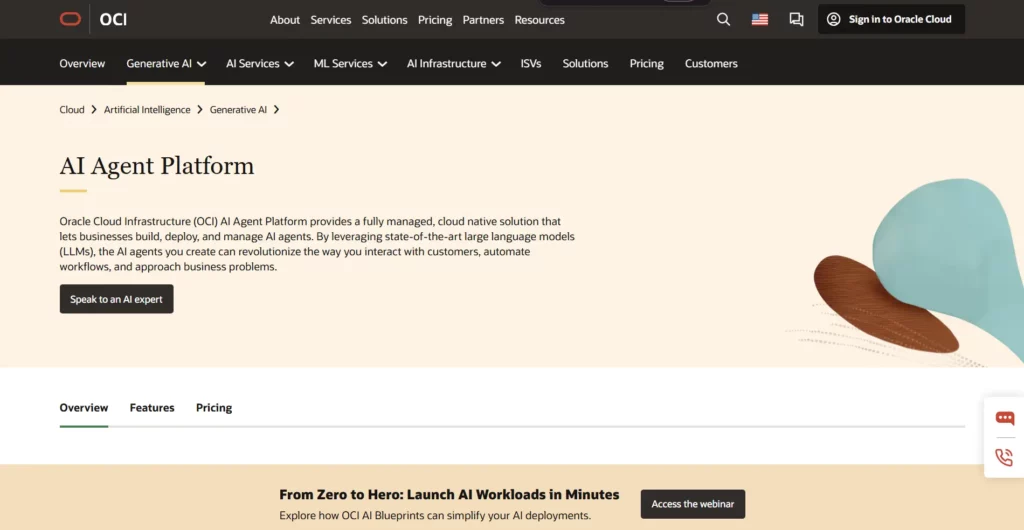
Oracle has embedded a suite of over 50 AI agents into its Fusion Cloud Applications, and “Miracle Agent” leads the way. This agent automates end-to-end processes across finance, HR, and supply chain in Oracle’s ERP ecosystem. It can digest both structured and unstructured data, trigger business tasks, and handle approvals without human intervention. For example, Miracle Agent can automatically process invoices, flag exceptions, and route approvals, saving countless hours. Strength: Deep integration with Oracle’s cloud platform for full workflow automation. Ideal for: Enterprises already running Oracle Fusion who want to eliminate manual back-office work.
Stat check: Oracle’s AI agents are rolling out across its cloud suite in 2025. This promises faster cycle times in financial closes and HR onboarding (early adopters report significant reductions in manual data entry). Oracle’s focus on domain-specific AI ensures that Miracle Agent understands enterprise data and business rules out of the box.
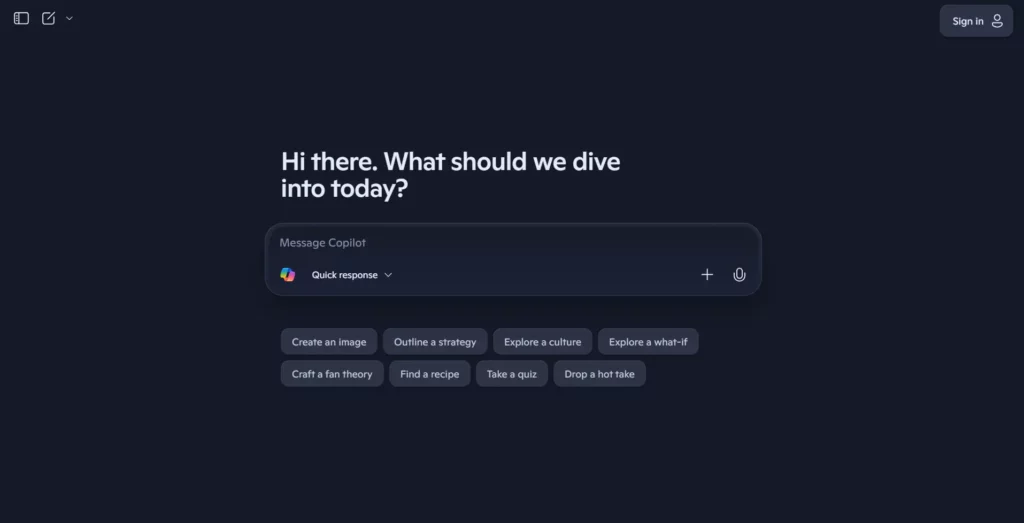
Microsoft’s Copilot agents work across Microsoft 365 and Dynamics 365, taking on tasks inside the tools employees use daily. These aren’t passive Clippy-style assistants – they execute tasks across apps. For example, a Copilot in Dynamics can update CRM entries, schedule follow-ups, and manage service tickets automatically. Microsoft’s Copilot Studio even lets teams build custom agents for specific workflows. Strength: Native task execution across Office apps and business processes. Imagine an agent drafting emails in Outlook, updating Excel reports, and coordinating Teams meetings without prompts. Companies like ICG have already saved $500,000 and boosted profit margins by 20% by implementing Microsoft’s Copilot agents. This shows how automating everyday workflows translates to real ROI. Ideal for: Businesses in the Microsoft ecosystem seeking productivity gains through AI-driven automation.
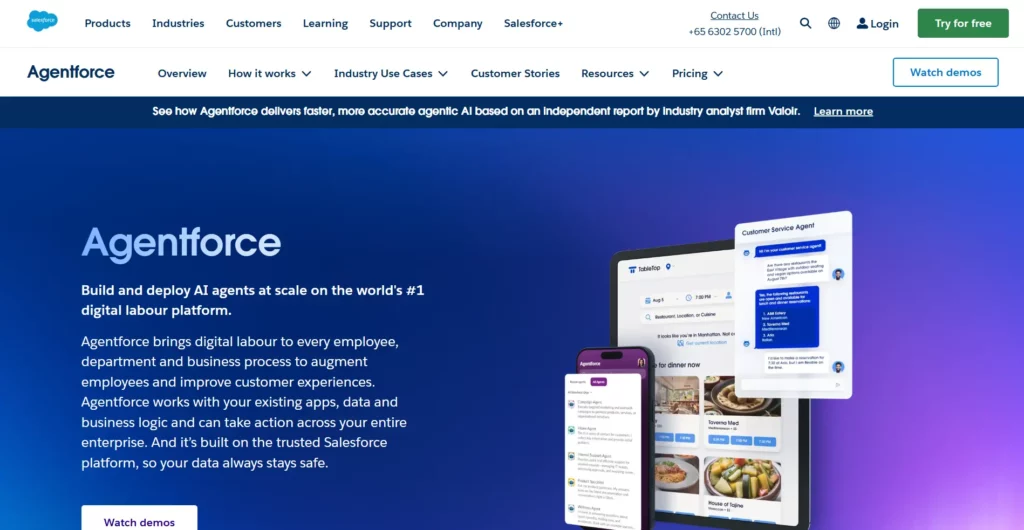
Salesforce’s Agentforce (latest version 2.0) brings autonomous agents to CRM and customer operations. These pre-built AI agents act as virtual sales reps and support agents inside Salesforce. They leverage Salesforce’s Data Cloud to access unified customer data and provide personalized, context-aware interactions. For example, an Agentforce bot can handle a customer inquiry from start to finish: pulling up order history, answering questions, and even creating a support ticket or upselling a product – all without human help.
Major clients like Adecco, OpenTable, and Saks Fifth Avenue use Agentforce to deliver faster, tailored responses to customers. Strength: Deep CRM integration and domain-specific agents (sales, service, marketing) that can be deployed quickly with low-code customization. Companies have found that Agentforce dramatically reduces response times and frees up human agents for complex cases. Ideal for: Sales and support teams looking to scale outreach and service with consistent quality. In CRM-driven workflows, Agentforce serves as an always-on digital workforce.
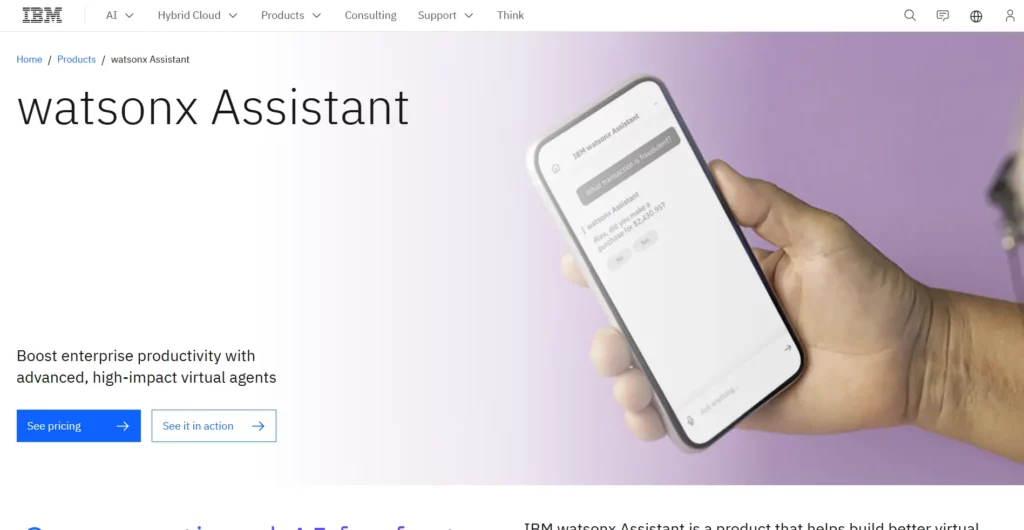
IBM’s Watsonx Assistant is an enterprise-grade conversational AI agent built with decades of AI research behind it. It’s designed for secure, compliant environments like banking, healthcare, and government. Watsonx Assistant can integrate with business systems and databases, enabling it to perform actions (like retrieving account info or updating records) through a natural language chat interface. Unlike generic chatbots, it offers an intuitive dialog editor and supports voice or text across channels. Strength: Robust NLU (natural language understanding) combined with strict security and data privacy controls.
For example, a bank can deploy Watsonx to handle customer inquiries about transactions and loans, knowing that the agent meets compliance standards. While newer entrants exist, IBM’s solution is trusted by regulated industries where data governance is critical. Ideal for: Enterprises needing an AI agent that can converse naturally while meeting strict compliance and reliability requirements. (IBM’s clients often cite the benefit of reducing call center loads by having Watsonx handle routine queries with over 90% accuracy.)
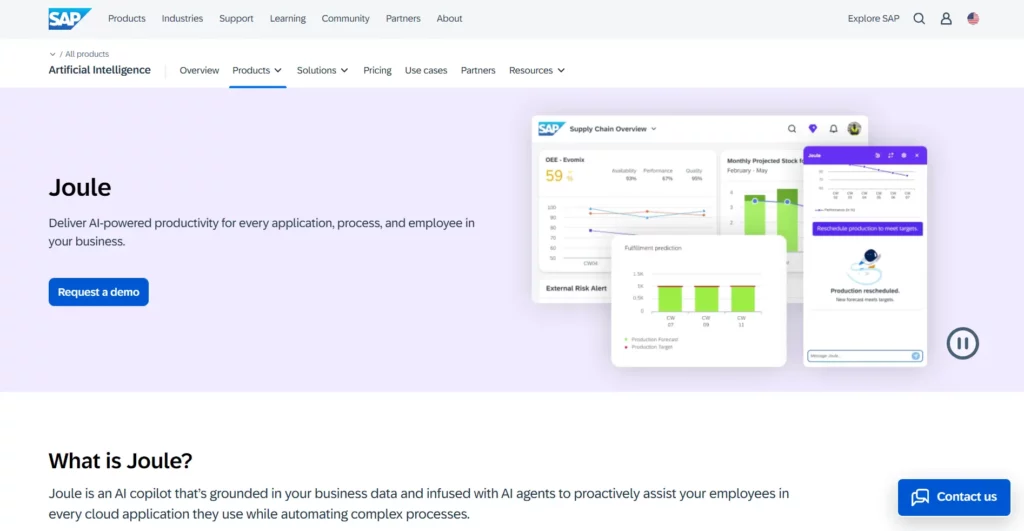
SAP introduced Joule as a built-in AI agent across its enterprise software suite to bring intelligent automation to ERP. Joule works behind the scenes in SAP systems to surface insights, flag anomalies, and recommend next actions across functions like HR, finance, and supply chain. It combines live business data with powerful language models (SAP has even integrated Meta’s Llama 3) to provide context-aware suggestions.
For instance, Joule might detect an unusual spending pattern in procurement and alert managers, or it could automatically draft a KPI report based on real-time data in SAP. Strength: Collaborative intelligence – Joule augments human decision-making by catching issues and opportunities hidden in vast enterprise data. SAP reports that early deployments of Joule have sped up decision cycles and prevented costly errors (like catching inventory shortages weeks sooner). Ideal for: Organizations running SAP who want to enhance operational workflows with AI. Joule acts like a smart analyst embedded in the system, boosting efficiency without requiring users to learn new tools.
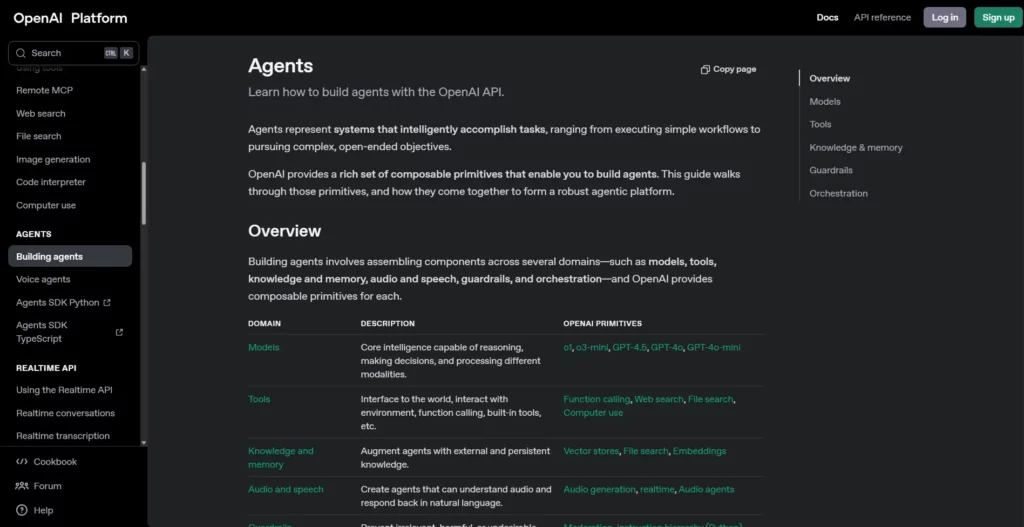
OpenAI’s GPT-4 model is not only a chatbot but also the engine behind emerging autonomous agents. Two notable examples are ChatGPT’s Code Interpreter (recently renamed Advanced Data Analysis) and the experimental OpenAI “Operator” agent. With Code Interpreter, GPT-4 can autonomously write and execute code to analyze data, generate charts, edit files, and more – all based on a user’s high-level request. It essentially acts as a data analyst who can take a question and produce insights with minimal hand-holding.
Meanwhile, OpenAI’s Operator is an AI agent that can navigate websites and apps like a human, by clicking, typing, and scrolling in a browser. In demos, Operator can book a flight or order lunch online end-to-end. (It runs in a secure sandbox, and sensitive actions like payments still require user approval for safety.) Strength: Advanced reasoning and tool use – OpenAI’s agents leverage GPT-4’s intelligence plus plugins or APIs to perform multi-step tasks in both digital and physical domains. Notably, ChatGPT reached 100 million users in record time, proving public trust in AI helpers. And with plugin integrations, a GPT-4 agent can already chain actions like finding information, calculating results, and executing tasks on behalf of users. Ideal for: Tech-savvy users and developers who want cutting-edge AI assistance for complex tasks (data analysis, research, multi-app workflows). OpenAI’s ecosystem is evolving fast, so expect these autonomous capabilities to grow.
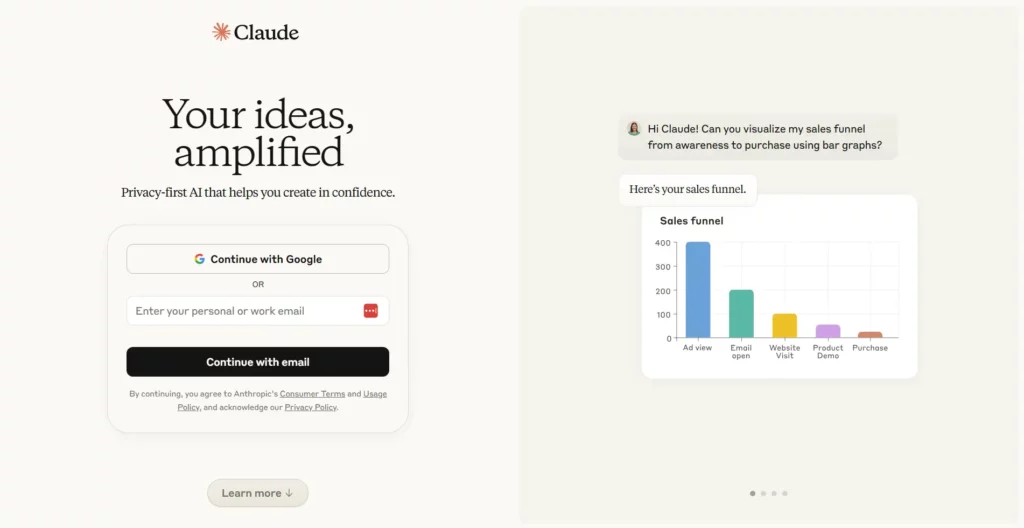
Anthropic’s Claude is another advanced AI model that has been extended into an agentic role. Claude 2 is known for its large context window and conversational prowess, but the upcoming Claude 3.5 is highlighted for its ability to mimic human behavior in digital environments. In tests, Claude can browse websites, click buttons, log into systems, and retrieve information just like a human working on a computer. This means Claude can be directed to perform tasks such as navigating a web app or assembling data from multiple online sources, rather than just output text.
Anthropic has emphasized “constitutional AI” (i.e. making Claude follow ethical guidelines) – giving businesses confidence in its safe deployment. Strength: Highly advanced natural language abilities with a focus on reliable and safe behavior, now combined with the capacity to take actions online. For example, an enterprise can use Claude to automate internal tooling: imagine an agent that can go into your internal dashboard, pull reports, and flag issues, all by interpreting a natural language goal. Ideal for: Companies that need an AI with a deep understanding of instructions and the ability to execute across various software, especially where maintaining a high safety standard is crucial. Claude is already being used for tasks like summarizing lengthy documents and assisting programmers, and its new action-taking skills push it into the best AI agent category for 2025.
8. Auto-GPT (Open-Source Autonomous Agent)
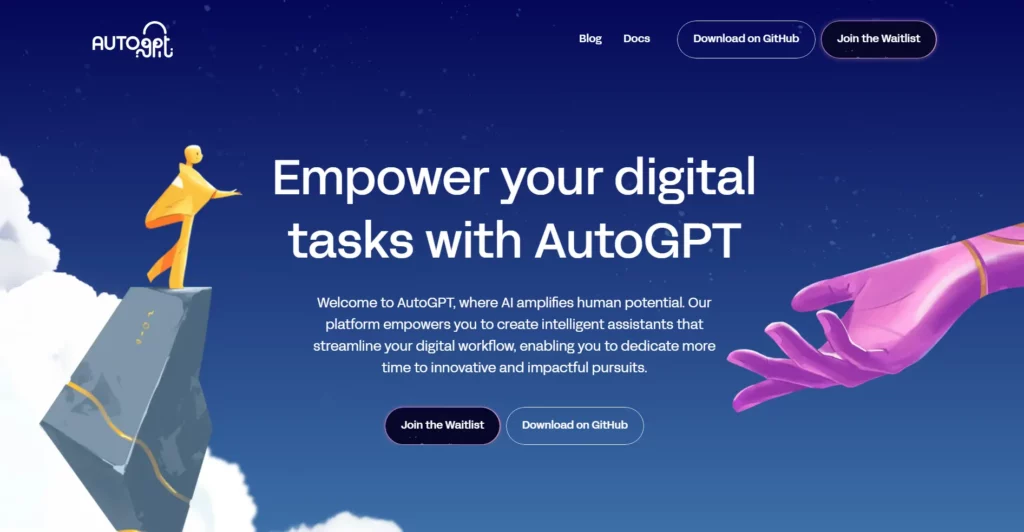
Auto-GPT was a pioneer in the autonomous AI agent space and remains a cornerstone for open-source experimentation. Launched in early 2023, Auto-GPT showed that GPT-4 could be “chained” to pursue goals semi-independently – breaking a complex goal into sub-tasks, executing them, learning from results, and iterating without constant user input.
For example, if you ask Auto-GPT to research a topic and write a report, it will generate a plan, search the web, gather information, and compose a draft, all on its own. It can also integrate with tools and APIs (for actions like sending emails or managing files) thanks to its modular design. Strength: Open-ended, experimental autonomy – Auto-GPT gives a glimpse of what fully self-directed AI could do, and it’s completely customizable. It has amassed a huge developer community (over 100,000 GitHub stars) and inspired countless variants. Technical teams use it to automate multi-step workflows and even as a testbed for new research.
One company cited by DataCamp used Auto-GPT to automate parts of their data collection process, cutting manual effort by hours each week. Ideal for: Developers, researchers, and innovators who want to build their own autonomous AI solutions. Auto-GPT is more a framework than a finished product, which means it requires tinkering – but that also means unlimited flexibility for those looking to push the boundaries of AI agents.
9. Moveworks (Employee Support Agent)
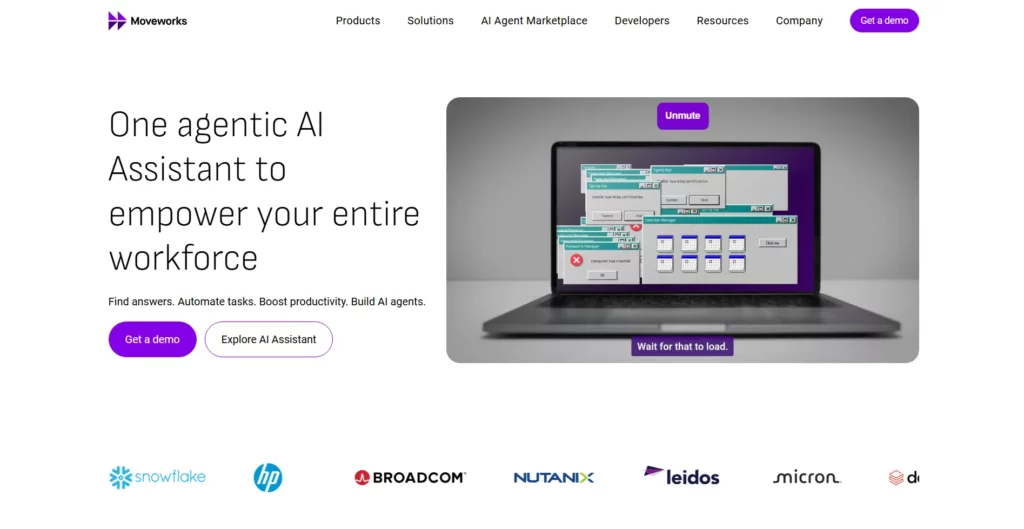
Moveworks is a specialized AI agent focused on automating IT and HR support inside large organizations. It acts like a virtual help desk assistant, handling employees’ requests in seconds via chat or email. For instance, if an employee messages about a password reset or a software access issue, Moveworks interprets the request, takes the necessary action (like triggering the reset or routing the request), and responds to the employee with resolution details – all autonomously. The impact on internal support is huge: companies like CVS Health cut live IT help chats by 50% by deploying Moveworks. Strength: Out-of-the-box support workflows backed by AI that understands enterprise lingo and systems.
Moveworks comes pre-trained on common IT/service desk scenarios and can integrate with platforms like Office 365, ServiceNow, and Slack. It also supports multiple languages, which is great for global teams. Ideal for: Medium to large companies aiming to improve employee support and productivity. By resolving routine issues instantly, Moveworks not only saves support teams’ time but also delights employees with quick help. Its success with major enterprises shows how a focused AI agent can deliver tangible business value (like faster onboarding, quicker ticket resolution, and higher employee satisfaction).
Partnering with Designveloper for AI-Powered Workflows
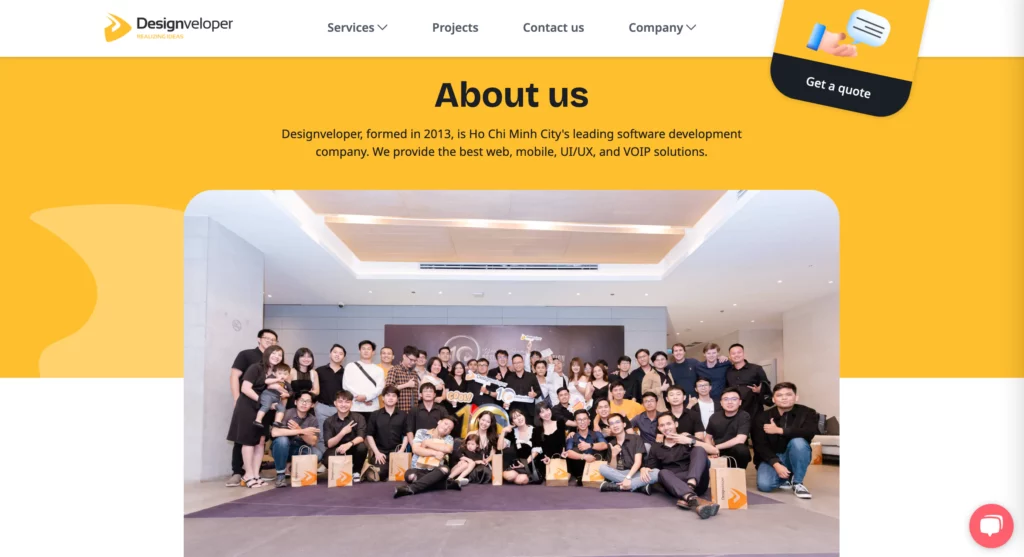
At Designveloper, we understand that implementing AI agents effectively requires both technical expertise and a deep understanding of business needs. As a leading web & software development company in Vietnam since 2013, we have delivered 100+ successful projects for clients around the world. Additionally, our team of over 100 skilled engineers and designers has mastered 20+ technologies – from web/mobile to AI and chatbot development. In fact, we’ve accumulated 200,000+ working hours building software solutions, honing an efficient and quality-driven process along the way.
What does this mean for you? It means Designveloper has the experience to turn cutting-edge AI agent ideas into reality. We provide AI development services that leverage the latest in machine learning and automation. For example, we crafted the Chloe Ting Fitness Hub, a dynamic platform that supports a worldwide community of fitness enthusiasts. This project integrated web and mobile apps with AI-driven personalization – and it’s just one instance of how we bring innovation to life. Our solutions have real impact: one client’s healthcare website saw a 35% decrease in bounce rate and significant traffic growth after we revamped their platform. These outcomes stem from our philosophy of aligning technology with user needs and business goals.
Our Mission
When it comes to autonomous workflows, we don’t just code an AI agent and call it a day. We collaborate closely with you to identify high-value tasks to automate, ensure data quality, and set up the necessary integrations and feedback loops. Nearly 70% of businesses outsource to cut costs when developing software, and indeed our offshore development model is cost-effective. But we know it’s not just about cost. Essentially speaking, our mission is to deliver expertise, reliability, and long-term support – the things that truly drive success with AI projects. We stay up-to-date with the latest AI frameworks (whether it’s LangChain, AutoGen, or new enterprise APIs) so that we can choose the right tools for your project and scale it effectively.
In short, Designveloper is more than a vendor – we are your partner in navigating the AI revolution. With over 11 years of experience and a track record of happy clients, we have the confidence and know-how to implement the best AI agent solutions tailored to your business. Let us help you automate workflows and innovate faster. The age of intelligent delegation has arrived, and together with Designveloper, you can harness it to leap ahead of the competition. Contact us to explore how we can make autonomous workflows work for you – turning your ideas into reality with the power of AI!


